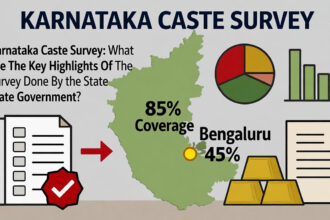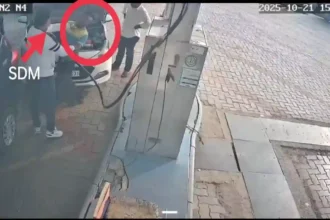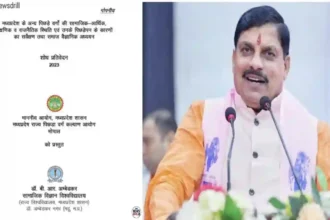Rahul Gandhi has reignited political debate by formally accusing the BJP-led alliance and the Election Commission of India (ECI) of “match-fixing” the November 2024 Maharashtra Assembly elections. He asserts a systematic five-step plan aimed to manipulate democratic processes and undermine electoral integrity. This controversy has sparked strong rebuttals from both the ECI and the BJP.
Rahul Gandhi’s Key Allegations
In an op‑ed titled “Match‑Fixing Maharashtra“, Gandhi outlines his five‑step narrative:
1. “Rig the panel” appointing Election Commissioners by amending the selection rules to favour the Centre.
2. Inflate the electoral roll — Maoha showed an “incredible leap” of 41 lakh new voters between the April–May general election and the November assembly polls.
3. Fake or inflated voter turnout — A suspicious jump of 7.83 %, adding ~76 lakh votes on counting day.
4. Targeted bogus voting — Focused in areas where the BJP needed to win; example: Kamthi saw a surge from 1.19 lakh to 1.75 lakh BJP votes.
5. Hide evidence — Withhold CCTV footage, polling data, and roll sheets.
Gandhi has demanded that the Election Commission release machine-readable voter rolls and post‑5 pm CCTV/video footage from all polling booths.
He warns that the same “blueprint” may be used in upcoming Bihar Assembly elections.
Election Commission’s Response
The ECI has sharply rejected the allegations:
Calls them “completely absurd” and “unsubstantiated”, stating the issues were already addressed in a formal reply to Congress on 24 December 2024.
Highlights that political party agents were present throughout the roll revision, voting, and counting — with only a handful of appeals (89 at first instance, 1 at second).
Defends the uptick in votes as legitimate reporting flow, consistent with historical turnout patterns.
Emphasizes that these allegations do a disservice to polling agents and election staff working in good faith.
BJP’s Retort
The BJP has responded with strong critiques:
IT Cell chief Amit Malviya compares Gandhi’s approach to “George Soros’ playbook”, accusing him of eroding trust in democratic institutions.
Health Minister J.P. Nadda mocks the Congress strategy, outlining a satirical “five‑step guide for manufacturing fake narratives”.
BJP spokespersons term Rahul’s claims “disgraceful” and politically motivated, meant to disrespect voters and support staff.
Implications & Outlook
Transparency vs. trust-deficit: Gandhi’s demands highlight public appetite for increased electoral transparency. The ECI insists existing protocols (watching agents, roll audits, CCTV) ensure integrity.
Polarised narrative: The BJP’s framing stresses stability and integrity, accusing Rahul of destabilising institutions for partisan gain.
Election season context: With Bihar elections ahead, this debate over Maharashtra’s mandate may shape broader discussions on trust in India’s electoral system.
🔍 Conclusion
Rahul Gandhi’s allegations have brought renewed focus on voter roll management, polling transparency, and the role of institutional frameworks in Indian democracy. While his claims resonate with demands for stricter oversight, the ECI and BJP vehemently defend current systems and processes. The coming Bihar elections may be the next arena where this debate over electoral integrity is vividly replayed.
















